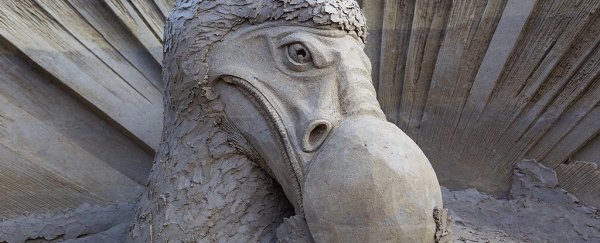Species come and go, but never quite like this. Our biosphere's diversity is thinning at a shocking rate, with fingers pointed at everything from global warming to hunting to habitat clearing as agents of destruction.
Now, it turns out one offender stands head and shoulders above the rest. Alien invaders of the Earthly variety - invasive species - have played a key role in roughly a third of all animal extinctions in the past 500 years.
A recent study conducted by researchers from the UK, France, and Canada weighed in on a debate in ecology circles about whether invasive species were really as bad as we'd thought.
"Some people have suggested that aliens are no more likely than native species to cause species to disappear in the current global extinction crisis," says ecologist Tim Blackburn from University College London.
The argument is based on the assumption that a species from a far distant part of the globe is unlikely to cause more harm than a more local species slipping into an environment from a neighbouring habitat.
If true, our guilt over introducing foreign species to new lands would be misplaced. Infamous examples of rats wiping out the dodo and cane toads running amok in Australia aside, we might be overlooking damage done by the locals.
"But our analysis shows that aliens are much more of a problem in this regard," says Blackburn.
Ecological aliens have made quantum leaps across geographical boundaries since forever, carried afar on winds and tide; but it took human colonisation to really establish a new era in species migration.
So the team used the 2017 IUCN Red List database to compile a list of species that have either gone extinct since 1500 CE, or would have disappeared had we not brought the last remaining representatives into captivity.
This gave them a total of 153 plants and 782 animals to analyse and sort according to contributing factors of demise.
The IUCN includes details on 12 broad categories describing the reasons why a species has gone extinct, such as the role of agriculture or exploitation by humans as a biological resource.
Invasive species were at least partially responsible for wiping out 33.4 percent of the listed animals, and 25.5 percent of the plants.
The only other factor that came close was hunting, which had a hand in 18.8 percent of the animal species, and overharvesting, which helped 23.5 percent of all extinct plants dwindle away.
By comparison, native species inching into new territories were somewhat to blame in just 2.7 percent of animal extinctions, and 4.6 percent of plant losses. Even then, a number of other factors helped wipe out the populations.
"The invasion of an alien species is often enough to cause native species to go extinct, whereas we found no evidence for native species being the sole driver of extinction of other natives in any case," says Blackburn.
Some classes fared worse than others. Every single extinct spider and millipede on record was adversely affected by an invader, as were two thirds of all extinct birds.
If the numbers sound bad, brace yourself; they're likely to be even worse. Where the origins of an offensive species weren't clear, the researchers considered them native rather than invasive.
"Our results are therefore conservative in terms of the extent to which we implicate alien species in extinction. Also, many regions of the world have not been well studied, and there are likely to be further extinctions that haven't been captured in these data," says Blackburn.
According to a similar study conducted several years ago, the big offenders are likely to be animals like cats, rats, dogs, and pigs, which jumped ship as sea-going vessels touched down on distant shores.
As for plants, our desire to wander through gardens full of greenery that remind us of home has led to the deliberate introduction of botanical species that can quickly get out of hand.
In these examples lurks a clue that explains why the species we humans bring with us might be so much worse than accidents of nature.
The plants and animals we bring with us aren't the result of a lottery. They're often selected - whether deliberately or naturally - for their ability to survive and to adapt quickly to hostile surrounds and thrive outside their comfort zones; it makes them productive and easy for us to care for.
For all we've learned in recent decades about the risk of invasive species, human movement continues to see plant and animal species leap into new environments.
This is one alien invasion we really ought to be paying serious attention to.
This research was published in Frontiers in Ecology and the Environment.
